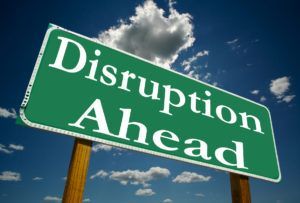Effective Leadership in a Crisis
Rich Baron • October 23, 2023
Being Prepared for Crisis is an Essential Leadership Skill
We tend to assume that leadership takes place under stable circumstances. Many of our theories of leadership conceptualize leadership under these “normal” and stable conditions. However, there is likely no situation where leadership is more important than during a time of crisis. It is a guarantee that at some point in a leader's career, they will be faced with some type of crisis. How you handle that crisis and move your team through those trying times is what separates the pros from the amateurs.
During times of crisis, effective leadership becomes even more critical as it requires the ability to make tough decisions, communicate clearly and decisively, and inspire confidence in others. This may involve thinking outside the box, taking risks, and being open to new ideas and perspectives.
Leaders who are prepared to face potential crises possess qualities such as resilience, courage, the ability to think strategically under pressure, and emotional intelligence. They can navigate through difficult situations with grace and composure, never losing sight of the bigger picture. They can make tough decisions, even in the face of adversity, and communicate them effectively to their team.
A Short List of Issues
Although this list is not exhaustive, these are just a few of the potential crises a leader can face during their career.
1.
Financial crisis: This could be a recession, market crash, or unexpected financial loss that impacts the company's bottom line.
2.
Public relations crisis: This could be a scandal, negative press coverage, or social media backlash that damages the company's reputation and brand image.
3.
Leadership crisis: This could be a situation where key leaders in the organization are found to be unethical, incompetent, or engaging in misconduct that jeopardizes the company's success.
4.
Legal crisis: This could be a lawsuit, regulatory investigation, or compliance issue that could result in significant financial losses or damage to the company's reputation.
5.
Natural disaster crisis: This could be a hurricane, earthquake, or other natural disaster that disrupts operations and puts employees, customers, and stakeholders at risk.
6.
Cybersecurity crisis: This could be a data breach, hacking incident, or ransomware attack that compromises sensitive information and damages the company's credibility with customers and partners.
7.
Health crisis: This could be a global pandemic, epidemic, or public health emergency that disrupts operations, impacts employee morale, and threatens the safety and well-being of the workforce.
8.
Supply chain crisis: This could be a disruption in the supply chain due to geopolitical events, trade wars, or logistical challenges that could lead to product shortages, increased costs, and customer dissatisfaction.
9.
Employee crisis: This could be a labor strike, employee misconduct, or internal conflict that impacts team morale, productivity, and the company's ability to retain top talent.
10.
Environmental crisis: This could be a pollution incident, natural resource depletion, or climate change event that puts the company at risk of legal action, negative publicity, and damage to the environment.
Be Prepared
To put it mildly, waiting for the crisis to show up is not the time to find out you are not ready. Failure to act accordingly can result in serious issues for your employees, the company, the community, and yourself. Effective crisis management skills and the ability to lead with integrity, transparency, and agility are essential for leaders to navigate and overcome these challenges.
The real concern here is how many leaders are not aware that they are not prepared to successfully weather the storm.
Crises present ambiguous and changing stimuli that require normative power, collaboration, and asking the right questions to help organizations come together to make sense of and navigate the unknown—all of which are functions of leadership. It is critical to note that it is impossible to plan and prepare for every possible crisis. Meaning, planning, and preparation for all foreseeable crises should be prioritized. However, unforeseen crises are inevitable and will require individual and collective leadership capacity to adapt and respond accordingly.
There will be times when you are faced with challenges that can be overwhelming if you are not prepared. During these unforeseen crises, more experienced leaders see situations in more structured terms, rely on well-rehearsed strategies, and move more quickly to action. Leaders must be able to remain calm and composed, even when faced with uncertainty and chaos. They need to be able to assess the situation quickly, gather relevant information, and make informed decisions promptly.
Effective communication skills are also key during a crisis. Leaders must be transparent, honest, and consistent in their messaging to build trust and credibility with their team. Keeping everyone informed and updated on the situation can help alleviate anxiety and uncertainty.
Go Ahead and Break Things
Some of the best advice I have ever been given was that if something is not broken, break it and learn how to fix it. This is not in the literal sense, but rather having a plan in place, and knowing how to implement that plan in the event a crisis does arise.
By intentionally breaking something that is currently stable, you are forcing yourself to think critically about how to repair and improve it. This mindset of continuous improvement and being prepared for any situation is crucial for success in any organization or leadership role. It encourages proactive thinking, problem-solving skills, and the ability to adapt to unexpected challenges.
Furthermore, by intentionally breaking something, you are also testing your own resilience and ability to handle difficult situations. This type of preparation builds confidence and allows you to approach future challenges with a calm and collected mindset that will substantially shorten the time to react, mitigate any losses, and increase the potential for a successful outcome.
Overall, this advice has shaped my approach to leadership and problem-solving, and I believe it is a valuable lesson that everyone should take to heart. It emphasizes the importance of being proactive, prepared, and adaptable in the face of adversity.
Coaching Can Help To Prepare
Not all leaders will be tasked with navigating through a major crisis, but all leaders will face some type of crisis during their careers. It is a crucial aspect of leadership that leaders are familiar with the different types of crises so that they can be attuned to the early warning signs and recognize a crisis when it does arise.
Executive coaching helps leaders further develop their skills and abilities so that they can continue to lead with confidence and conviction during a crisis. Through coaching, they can gain new perspectives, enhance their problem-solving skills, and learn how to effectively manage their emotions in high-pressure situations.
Ultimately, tough leaders can inspire and motivate their teams to achieve great things, even in the face of challenges. They are respected by their employees and peers alike and can create a positive and productive work environment. Executive coaching helps to cultivate and strengthen these qualities in leaders, enabling them to lead with toughness and grace.
Wrapping Up
Finally, a crisis can also be an opportunity for growth and learning. Effective leaders use crises as a chance to reflect on their leadership style, identify areas for improvement, and develop new skills to better prepare for future challenges. Effective leadership during a crisis requires a combination of emotional intelligence, strategic thinking, communication skills, and the ability to remain calm under pressure. By demonstrating strong leadership capabilities during difficult times, a leader can inspire confidence, resilience, and unity within their team to navigate through the crisis successfully.
If you feel that your leadership skills are inadequate to face the future challenges that are coming, reach out to me here
to discuss how I can help prepare you to face times of crisis.
You can read the testimonials
of those leaders who worked with us to gain the confidence and mindsets to successfully lead their teams.
About the Author
Rich Baron holds the esteemed title of Master Certified Intelligent Leadership Executive Coach at John Mattone Global. With a wealth of expertise spanning over 25 years, he has excelled in various realms such as cultural transformation, operational leadership, executive positions, and coaching individuals from emerging leaders to CEOs. Together with his coaching partner, Maikel Bailey, Rich hosts "Mainline Executive Coaching ACT," a podcast acknowledged by Feedspot in 2023, and again in 2024 as the foremost Executive Coaching Podcast worldwide. This recognition is based on an evaluation of numerous podcasts on the internet, taking into account factors such as web traffic, social media followers, and timeliness. The podcast enjoys a substantial following in more than 60 countries and 550 cities across the globe.




